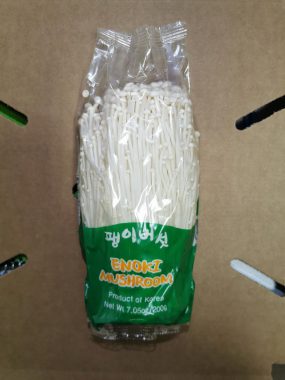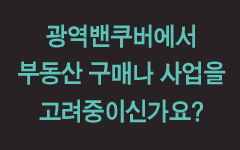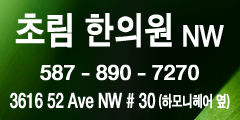팽이버섯 ‘참사’…리스테리아균 오염
[LA중앙일보] 발행 2020/03/12 미주판 1면 기사입력 2020/03/11 21:00
4명 죽고 30명 입원
가주 등 17개주 피해
 |
FDA가 발표한 자료에 따르면, 문제가 된 팽이버섯은 캘리포니아, 텍사스, 오리건, 워싱턴, 일리노이, 플로리다주에서 판매됐다. 또한 J&L 슈퍼마켓, 저스고(Jusgo) 슈퍼마켓, ZTao 마켓, 뉴상(New Sang) 슈퍼마켓, 갤러리아 마켓 등에 납품된 것으로 확인됐다. 낱개로 포장된 제품 앞면에는 ‘팽이버섯’ 네 글자가 한글로 적혀있으며 한국산(Product of Korea), 중량 7.05oz(200g)이 표기돼 있다.
질병통제예방센터(CDC)에 따르면, 사망자 4명은 캘리포니아, 하와이, 뉴저지에서 발생했으며 총 17개주에서 36건의 감염 사례가 보고됐다. 특히 감염자 중 6명은 임산부였으며 이 중 2명은 유산을 한 것으로 나타났다. 감염 증상은 지난 2016년 11월23일부터 지난해 12월13일 사이에 보고됐다.
CDC 측은 “임산부나 65세 이상 노인, 면역력 약한 어린이는 한국산 팽이버섯을 피하라”면서 “현재 리콜 조치된 선홍식품의 팽이버섯은 절대 먹지 말고, 마켓에서도 팔아선 안된다”고 재차 경고했다.
한국산 팽이버섯 긴급 리콜
한 마켓 관계자는 “선홍식품 제품을 판매한 적 없지만, 이미 소비자들이 팽이버섯에 대한 불안감을 가지고 문의를 해 왔다”면서 “당분간 팽이버섯을 아예 판매하지 않을 계획”이라고 강조했다.
채소 도매업계의 한 관계자는 “식품 리스테리아균은 끓였을 때 99.9% 죽는다”며 “이번에 감염된 사례는 팽이버섯을 생으로 먹었거나 충분히 익히지 않은 것으로 추측한다”고 설명했다.
리스테리아증의 증상은 고열과 극심한 두통, 목 부분 경직, 구토, 복통, 설사 등이며 임산부의 경우 유산 또는 사산을 일으킬 수 있다. 리스테리아균은 토양·하천·하수·식물 등에서 발견되며, 흙을 통해 채소나 과일을 오염시키기도 하고 동물을 매개로 음식으로 옮겨갈 수도 있다. CDC는 “발병률은 높지 않지만 치사율이 16.25%에 달한다”고 발표한 바 있다.
선홍식품 팽이버섯 리콜 관련 문의는 전화(323-597-1112)로 할 수 있으며, 리콜 제품을 구입한 경우 해당 마켓에서 전액 환불받을 수 있다.
CDC, public health and regulatory officials in several states, and the U.S. Food and Drug Administration (FDA) are investigating a multistate outbreak of Listeria monocytogenes infections linked to enoki mushrooms.

- Reported Cases: 36
- States: 17
- Hospitalizations: 30
- Deaths: 4
- Recall: Yes

Recall Information
- On March 9, 2020, Sun Hong Foods, Inc. recalledexternal icon enoki mushrooms because they may be contaminated with Listeria monocytogenes bacteria.
- Enoki mushrooms are white, with long stems and small caps.
- Enoki mushrooms from Sun Hong Foods were sold in 7.05 oz / 200 g clear plastic packaging with a green label.
- “Product of Korea” is labeled on the front of the packaging, and “Sun Hong Foods, Inc.” is labeled on the back of the packaging underneath the bar code. These products can also be identified by the UPC code: 7 426852 625810.
- This investigation is ongoing to determine the source of contamination and if additional products are linked to illness.
Advice to Consumers, Food Service Operators, and Retailers
- Do not eat, serve, or sell any recalledexternal icon enoki mushrooms distributed by Sun Hong Foods, Inc.
- Check your refrigerator for recalled enoki mushrooms. Return them to the purchase location or throw them away.
- Do not eat any food made with recalled enoki mushrooms, even if some was consumed and no one became sick.
- Wash and sanitize any surfaces and containers that may have come in contact with the recalled enoki mushrooms. Listeria can survive in refrigerated temperatures and can easily spread to other foods and surfaces.
- Follow these five steps to clean your refrigerator.
- Wash surfaces with hot, soapy water.
- Wash containers with hot, soapy water or clean in the dishwasher.
- Call your healthcare provider if you have consumed recalled enoki mushrooms and are experiencing symptoms of Listeria infection.
Until we learn more about the source and distribution of the enoki mushrooms, CDC advises that people at higher risk for Listeria infections – pregnant women, adults ages 65 or older, and people with weakened immune systems, such as people with cancer or on dialysis – avoid eating any enoki mushrooms labeled as “Product of Korea”.
- At home, check your refrigerator for enoki mushrooms labeled as “Product of Korea”.
- If you have them, don’t eat them and throw them out.
- If you have them, wash and sanitize drawers or shelves in refrigerators where they were stored. Follow these five steps to clean your refrigerator.
- When you buy, order, or eat out, check with stores and restaurants that they do not use enoki mushrooms labeled as “Product of Korea”.
- If they don’t know where their enoki mushrooms are from, don’t buy or order the product.
- Call your healthcare provider if you have consumed enoki mushrooms labeled as “Product of Korea” and are experiencing symptoms of Listeria infection.

- 36 people infected with the outbreak strain of Listeria monocytogenes have been reported from 17 states.
- Illnesses started on dates ranging from November 23, 2016 to December 13, 2019.
- 30 hospitalizations have been reported. Four deaths have been reported from California, Hawaii, and New Jersey.
- Six pregnancy-associated cases have been reported, of which two resulted in fetal loss.
- Epidemiologic and laboratory evidence indicates that enoki mushrooms labeled as “Product of Korea” are the likely source of this outbreak.
- On March 9, 2020, Sun Hong Foods, Inc. recalled enoki mushrooms labeled as “Product of Korea” because they may be contaminated with Listeria monocytogenes bacteria.
- This investigation is ongoing to determine the source of contamination and if additional products are linked to illness. CDC will provide updates when more information is available.

- Listeriosis can cause different symptoms, depending on the person and the part of the body affected.
- Pregnant women typically experience only fever and other flu-like symptoms, such as fatigue and muscle aches. However, infections during pregnancy can lead to miscarriage, stillbirth, premature delivery, or life-threatening infection of the newborn.
- People other than pregnant women: Symptoms can include headache, stiff neck, confusion, loss of balance, and convulsions in addition to fever and muscle aches.
- Symptoms for invasive listeriosis usually start 1 to 4 weeks after eating food contaminated with Listeria. Some people have reported symptoms starting as late as 70 days after exposure or as early as the same day of exposure.
- Listeriosis is treated with antibiotics.
March 10, 2020
CDC, public health and regulatory officials in several states, and the U.S. Food and Drug Administration (FDA) are investigating a multistate outbreak of Listeria monocytogenesinfections linked to enoki mushrooms.
Public health investigators are using the PulseNet system to identify illnesses that may be part of this outbreak. PulseNet is the national subtyping network of public health and food regulatory agency laboratories coordinated by CDC. DNA fingerprinting is performed on Listeria bacteria isolated from ill people by using a standardized laboratory and data analysis method called whole genome sequencing (WGS). CDC PulseNet manages a national database of these sequences that are used to identify possible outbreaks. WGS gives investigators detailed information about the bacteria causing illness. In this investigation, WGS showed that bacteria isolated from ill people were closely related genetically. This means that people in this outbreak are more likely to share a common source of infection.
As of March 9, 2020, 36 people infected with the outbreak strain of Listeria monocytogenes have been reported from 17 states. A list of the states and the number of cases in each can be found on the Map of Reported Cases page.
Listeria samples from ill people were collected from November 23, 2016 to December 13, 2019. Ill people range in age from less than 1 to 97 years, with a median age of 67. Fifty-eight percent of ill people are female. Of 32 ill people with information available, 30 hospitalizations have been reported. Four deaths have been reported from California, Hawaii, and New Jersey. Six cases are pregnancy-associated and two resulted in fetal loss.
Investigation of the Outbreak
Epidemiologic and laboratory evidence indicates that enoki mushrooms labeled as “Product of Korea” are the likely source of this outbreak.
State and local public health officials interviewed ill people about the foods they ate in the month before they became ill. Twelve out of 22 (55%) reported eating mushrooms, including enoki, portobello, white, button, cremini, wood ear, maitake, and oyster.
Michigan Department of Agriculture and Rural Development collected mushrooms for testing from a grocery store where an ill person purchased enoki mushrooms. Two samples of enoki mushrooms yielded the outbreak strain of Listeria monocytogenes. These mushrooms are labeled as “Product of Korea” and were distributed by Sun Hong Foods, Inc. Additional product testing is ongoing in California.
On March 9, 2020, Sun Hong Foods, Inc. recalled enoki mushrooms (UPC 7 426852 625810) labeled as “Product of Korea”. Consumers, food service operators, and retailers should not eat, serve, or sell recalled enoki mushrooms. Enoki mushrooms distributed by Sun Hong Foods, Inc. do not account for all illnesses in this outbreak. FDA is working to identify the source of the enoki mushrooms distributed by Sun Hong Foods, Inc. and determine if other distributors received the same enoki mushrooms.
CDC is concerned that enoki mushrooms labeled as “Product of Korea” may be contaminated with Listeria monocytogenes and are advising people at higher risk – pregnant women, adults ages 65 years or older, and people with weakened immune systems – to avoid eating any enoki mushrooms labeled as “Product of Korea”, until investigators determine the source of contamination and if additional products are linked to illness.
CDC will provide updates when more information is available.












